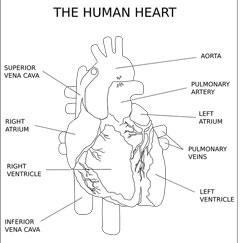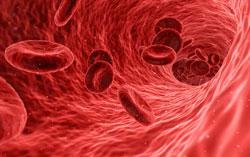Hardening of the arteries, also known as atherosclerosis, is a sneaky condition that restricts blood flow throughout your body.
It can affect any artery, but it's most dangerous when it targets the major ones supplying your heart, brain, legs, and kidneys.
The Silent Threat
Unlike some health problems, atherosclerosis often doesn't cause symptoms until the arteries are severely blocked. This means you could be walking around with hardening of the arteries and not even know it! In some cases, the first sign might be a serious event like a heart attack or stroke.
What Causes Hardening of the Arteries?
The exact cause of atherosclerosis is still a bit of a mystery, but there are some artery hardening risk factors you can control:
- High blood pressure: This is a major culprit, so keeping it in check is crucial (1) .
- High cholesterol: Unhealthy cholesterol levels can build up and clog your arteries.
- Diabetes: This condition can also contribute to artery hardening.
- Smoking: Cigarettes are bad news for your arteries!
- Lack of exercise: Get moving! Exercise helps keep your blood pressure and cholesterol in check.

Family Matters
Genetics can also play a role. If someone in your family has a history of atherosclerosis, you might be at higher risk. But don't despair! Even with a family history, you can still take steps to prevent hardening of arteries.
Warning Signs of Hardening of Arteries
While symptoms might not appear early on, there are some red flags to be aware of, depending on which arteries are affected:
- Chest pain or discomfort (angina):This can be a sign that your heart isn't getting enough blood.
- Shortness of breath and changes in heartbeat.
- Sudden weakness, confusion, speech difficulties, dizziness, or loss of consciousness.
- Severe headache, numbness in limbs, or frequent infections.
- Tiredness, increased urination, or loss of appetite.

How to Prevent
The good news is that there are ways to prevent atherosclerosis or slow it down. Here's what you can do:
- Manage your blood pressure and cholesterol: This is crucial for keeping your arteries healthy. Follow a healthy diet, exercise regularly, and take medication as prescribed by your doctor to keep your blood pressure in check and reduce cholesterol levels.
- Maintain a healthy weight: Extra pounds put extra strain on your heart and arteries. Losing weight and maintaining a healthy body mass index (BMI) can significantly reduce your risk of developing hardening of the arteries.
- Eat a heart-healthy diet: Focus on fruits, vegetables, whole grains, and lean protein. Focus on a diet rich in fruits, vegetables, whole grains, and lean protein. Limit saturated and trans fats, added sugar, and salt in your diet.
- Get regular exercise: Aim for at least 30 minutes of moderate-intensity exercise most days of the week. Physical activity helps keep your blood pressure and cholesterol in check, improves blood flow, and strengthens your heart.
- Quit smoking: Smoking damages your arteries and increases your risk of heart disease. The chemicals in cigarettes damage the inner lining of your arteries and contribute to plaque buildup. Quitting smoking is one of the best things you can do for your cardiovascular health.
- Manage stress: Chronic stress can contribute to high blood pressure and unhealthy lifestyle choices. Find healthy ways to manage stress, such as yoga, meditation, deep breathing exercises, or spending time in nature.
Reversal: A Work in Progress
While there's no guaranteed way to completely reverse hardening of arteries, some research suggests that lifestyle changes and exercise can make a significant difference over time. Working with your doctor, you can develop a plan to manage your risk factors and potentially even improve the condition of your arteries.
Conclusion
Taking care of your health early on is the best way to prevent hardening of the arteries and live a long, healthy life. Don't wait for a wake-up call from your heart – take charge of your health today!

